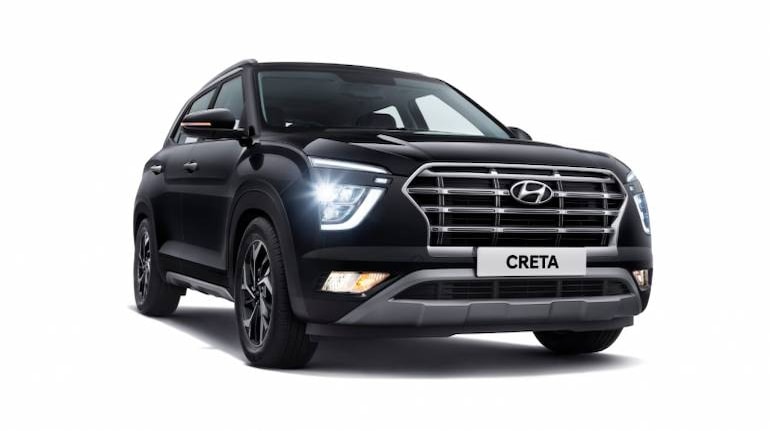While Maruti Suzuki has sworn off diesel vehicles in the wake of BS-VI emission norms kicking in, the likes of Hyundai, Kia, M&M and Tata Motors continue to churn out diesel models and are seeing healthy demand
Korean twins Hyundai and Kia have seen no let-up in demand for diesel engine-powered variants of the Creta and Seltos, respectively. Three out of every five new Cretas (65,000 bookings since March 2020) and one in every two Seltos units sold are powered by diesel engines.
Again, warhorses Scorpio and Bolero, made by SUV-specialist Mahindra & Mahindra, continue to generate significant demand in rural markets. Neither has a petrol option. And India’s third-largest carmaker Tata Motors has committed to produce diesel options as long as there is demand for them.
Contrarian view
But not every passenger vehicle maker is swayed by this trend, particularly car market leader Maruti Suzuki.
With the onset of Bharat Stage VI (BS-VI) emission norms from April 1, Maruti Suzuki totally abandoned the diesel category. The maker of Swift and Baleno believes that diesel variants would become unaffordably expensive for the compact car buyer.
Speaking to analysts, Shashank Srivastava, Executive Director, Maruti Suzuki India, said: “Diesel’s share was about 20.6 percent in Q1 as against 29.5 percent in FY20. Maruti Suzuki, of course, is at 0 percent because we don't have diesel (models). And as far as the competition is concerned, they are at 36 percent”.
Running cost factor
Maruti Suzuki’s belief has been strengthened by the rise in the price of diesel in recent days, almost to the petrol price level. “It does not make economic sense to have a diesel car if the criteria is running cost as it is roughly similar at about Rs 4/km for both. There is no economic logic in buying a diesel vehicle because of the large difference in acquisition cost and a very low difference or none at all in the running cost,” said Srivastava.
“There are some segments like the mid-SUV and above, where buyers are still looking for diesel because their preference is torque rather than economic requirements. And that is why we have said that Maruti Suzuki is also looking very closely to evaluate whether it requires to be present in the larger diesel category,” Srivastava added.
“There has been an increase in the upfront price differential of Rs 50,000 to Rs 70,000, post BS-VI implementation, which, along with narrowing fuel price gap, is accelerating this shift to petrol and CNG,” said rating agency ICRA. The increase is over and above the Rs 1 lakh-1.25 lakh premium there was before BS-VI implementation.
“Diesel’s share in PVs is expected to decline to 15-18 percent in FY2022 from 29 percent in FY2020. Within this, the share of diesel vehicles in the car segment will stabilize around 5-7 percent (from 11 percent), whereas the UV segment’s share will gradually reduce to sub 40 percent (from 65 percent) over the next 2-3 years”, ICRA added.
The end of BS-IV norms brought the curtains down on Maruti Suzuki’s diesel bouquet: the Brezza, S-Cross, Swift, Baleno, Ertiga, Dzire and Ciaz models. The company currently offers a pure petrol engine option or a petrol+CNG option. But Maruti’s competition is not letting this opportunity go away.
Filling the void
Hyundai’s compact SUV Venue, which takes Maruti’s Brezza head-on, is sating the consumer appetite for diesel. One third of Venue’s sales are made up of diesel engines. Brezza’s other competitor, Mahindra XUV300, has also not witnessed much change in diesel demand.
Rajesh Jejurikar, Additional Director & Executive Director of Automotive and Farm Sectors, M&M, said: “On the rural side, we are not seeing any consumer desire to move to gasoline in the segments we participate in. In the urban market, especially in the compact SUV segment, where we have XUV300, about 35-40 percent is gasoline. So, there is some shift on the urban side. But on the rural side, and products like Scorpio and Bolero, the customer continues to have a distinct preference for diesel”.
Kia’s new launch Sonet, which will hit the market in a few weeks, will also have a diesel engine option. The Sonet, too, will go head-to-head with the Maruti Brezza. Sources in Kia Motors say that the diesel composition of the Sonet is expected to be north of 30 percent.
Commenting on Tata Motors’ strategy, PB Balaji, CFO, said: “We have consciously maintained the strategy that customers have choice and whatever they prefer they can buy. The mileage and torque characteristics are different for diesel. Our objective is to give choice and let the customers decide rather than ordaining that ‘this is what we will give you.’”






